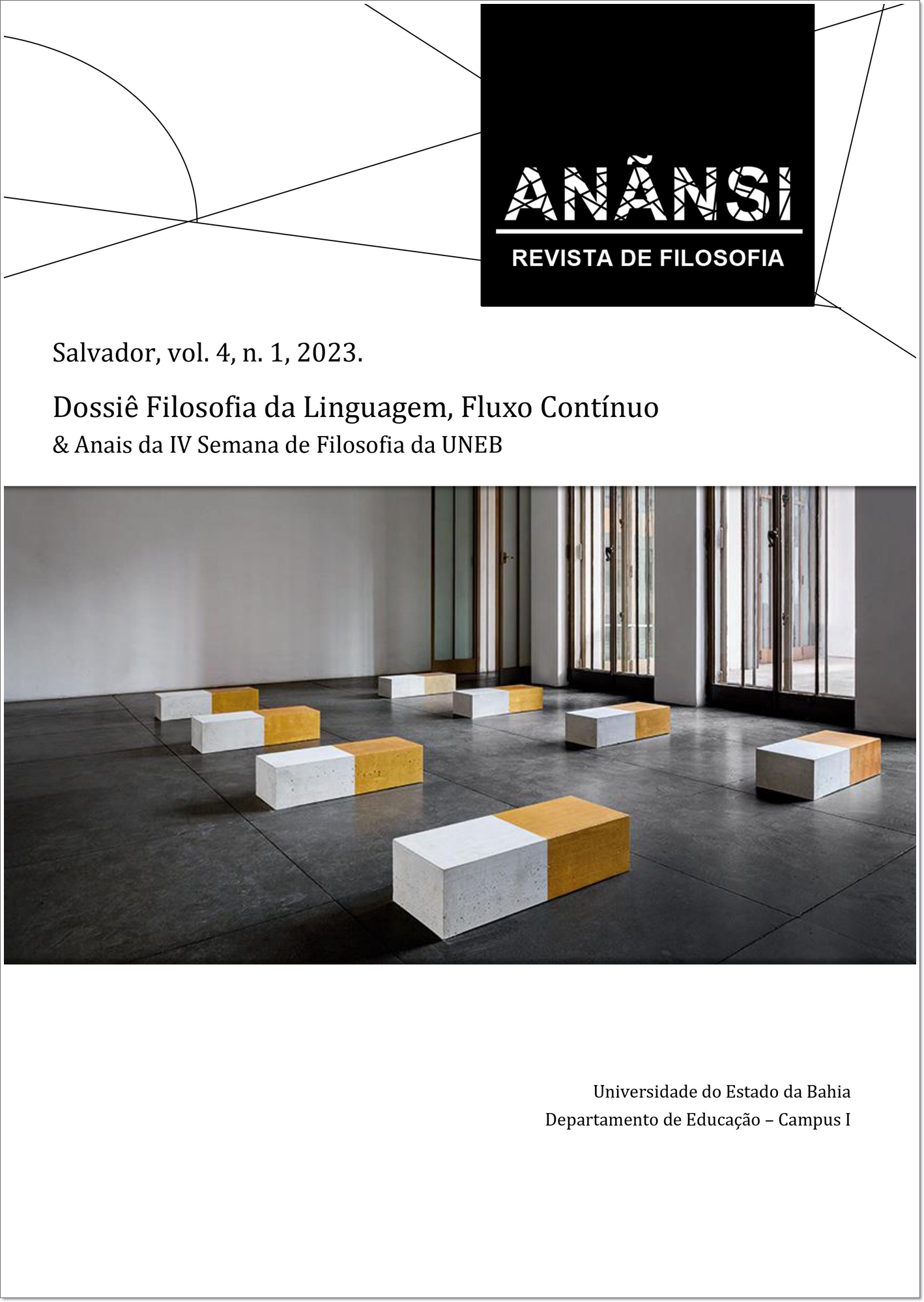A phenomenological reflection on the questionnaire in the study Scientific Norms and Values and how this relates to a possible Hawthorne Effect
Keywords:
Hawthorne Effect, Phenomenology, Questionnaire, Conscience, IntentionalityAbstract
This paper presents a phenomenological reflection on the use of the questionnaire as a method of data collection in the study Scientific Norms and Values by Mendez-Ochaita, et. al. (2019), hypothesizing about it a possible special kind of Hawthorne Effect and concluding that this, although important as a finding, does not seem to alter the conclusions of the study. Through the phenomenological deepening of the experience of undergoing and answering the questionnaire, this essay exposed and clarified a series of phenomena, which led to the essay's hypothesis, such as the expansion of consciousness for representativeness, and subsequently corroborated it, such as phenomenal intentionality.
Downloads
References
ADRIAANS, P. In: The Stanford Encyclopedia of Philosophy. Information. Stanford: Ed. Edward N. Zalta, Fall, 2020. Disponible en: <https://plato.stanford.edu/archives/fall2020/entries/information/>.
AMSTRONG, P. In: Johns Hopkins Guide for Literary Theory and Criticism. Phenomenology. Providence (Brown University): 2nd Edition, 2005. Disponible en: <https://www.brown.edu/Departments/Joukowsky_Institute/courses/architecturebodyperformance/1065.html#:~:text=Phenomenology%20is%20a%20philosophy%20of,flow%20of%20the%20lived%20world>.
BOURGET, D. & MENDELOVICI, A. In: The Stanford Encyclopedia of Philosophy. Phenomenal Intentionality. Palo Alto (Stanford University): Ed. Edward N. Zalta, Fall, 2019. Disponible en: <https://plato.stanford.edu/archives/fall2019/entries/phenomenal-intentionality/>.
BUCHANA, I. In: Oxford Quick Reference. From: A Dictionary of Critical Theory. Oxford: Oxford University Press: Ed.1, 2018. Disponible en: <https://www.oxfordreference.com/display/10.1093/oi/authority.20110803100509187>.
GIUBILINI, A. In: The Stanford Encyclopedia of Philosophy. Conscience. Palo Alto (Stanford University): Ed. Edward N. Zalta, Summer, 2022. Disponible en: <https://plato.stanford.edu/archives/sum2022/entries/conscience/>.
HAMUI, S. “Ethos, estructura y trayectoria de los grupos de investigación”. En Los científicos y su quehacer. In: Perspectivas en los estudios sobre trayectorias, producciones y prácticas científicas. Ed. Eduardo Remedi Allione y Rosalba Ramírez García. Ciudad de México: Asociación Nacional de Universidades e Instituciones de Educación Superior, 2016.
MENDEZ-OCHAITA, M. et al. Normas y valores científicos: la ambivalencia percibida en las prácticas de investigación en una universidad pública mexicana. In: Sociológica, Ciudad de Mexico, vol.34, n.98, pp.111-158. Disponible en: <https://scielo.org.mx/pdf/soc/v34n96/2007-8358-soc-34-96-39.pdf>.
The Editors of Encyclopaedia Britannica. Hawthorne Research. In: Encyclopedia Britannica. Encyclopedia Britannica: Ed. February 2023. Disponible en: <https://www.britannica.com/topic/Hawthorne-research>.
The Editors of Encyclopaedia Britannica. Sensation. In: Encyclopedia Britannica. Encyclopedia Britannica: Ed. January 2011. Disponible en: <https://www.britannica.com/topic/sensation>.
ZALEZNIK, A. The “Hawthorne Effect”: What Mayo urged in broad outline has become part of the orthodoxy of modern management. In: Harvard Bussines School Historical Collections. Boston: Baker Library, 1984. Disponible en: <https://www.library.hbs.edu/hc/hawthorne/09.html#nine>.





